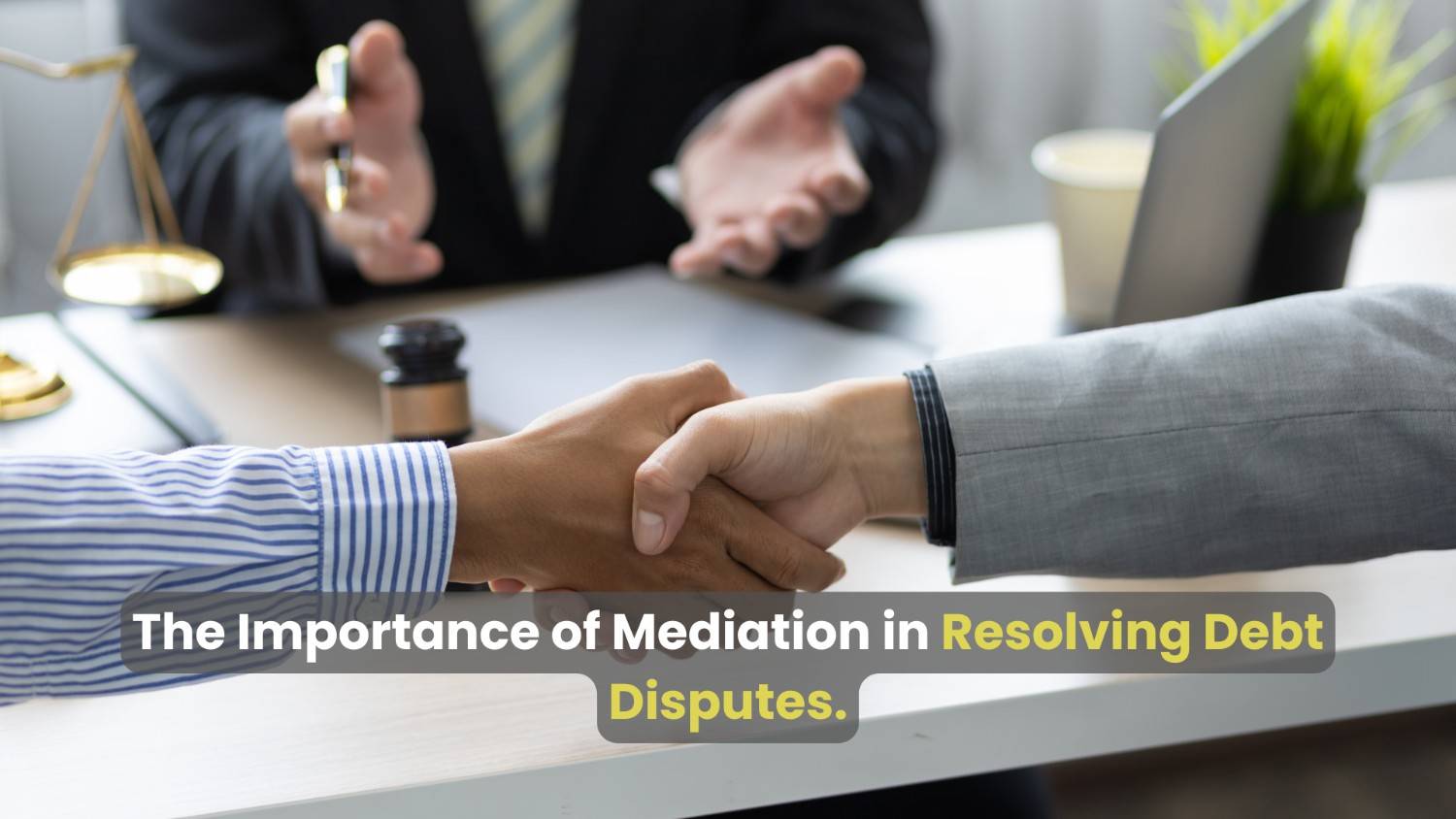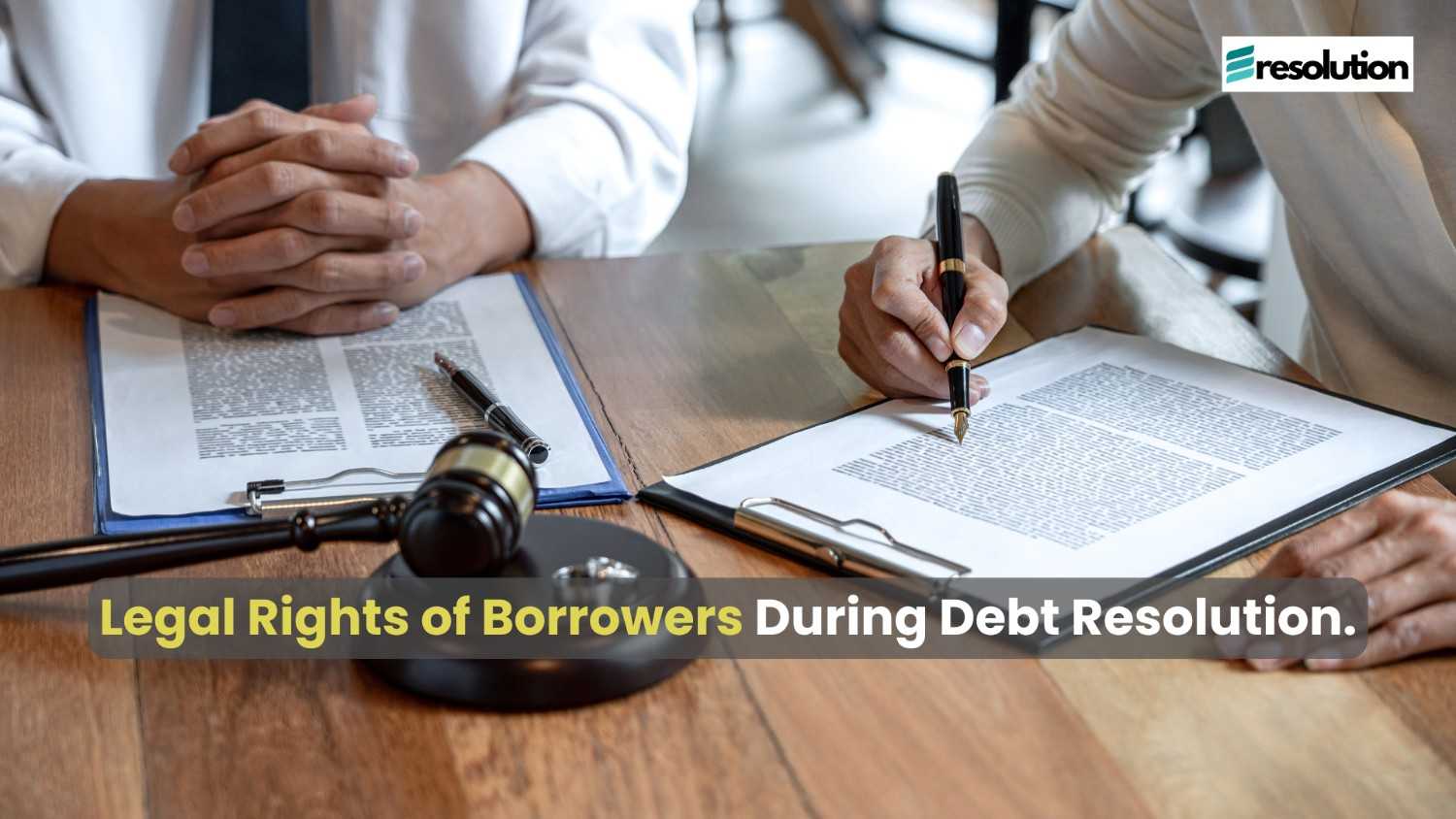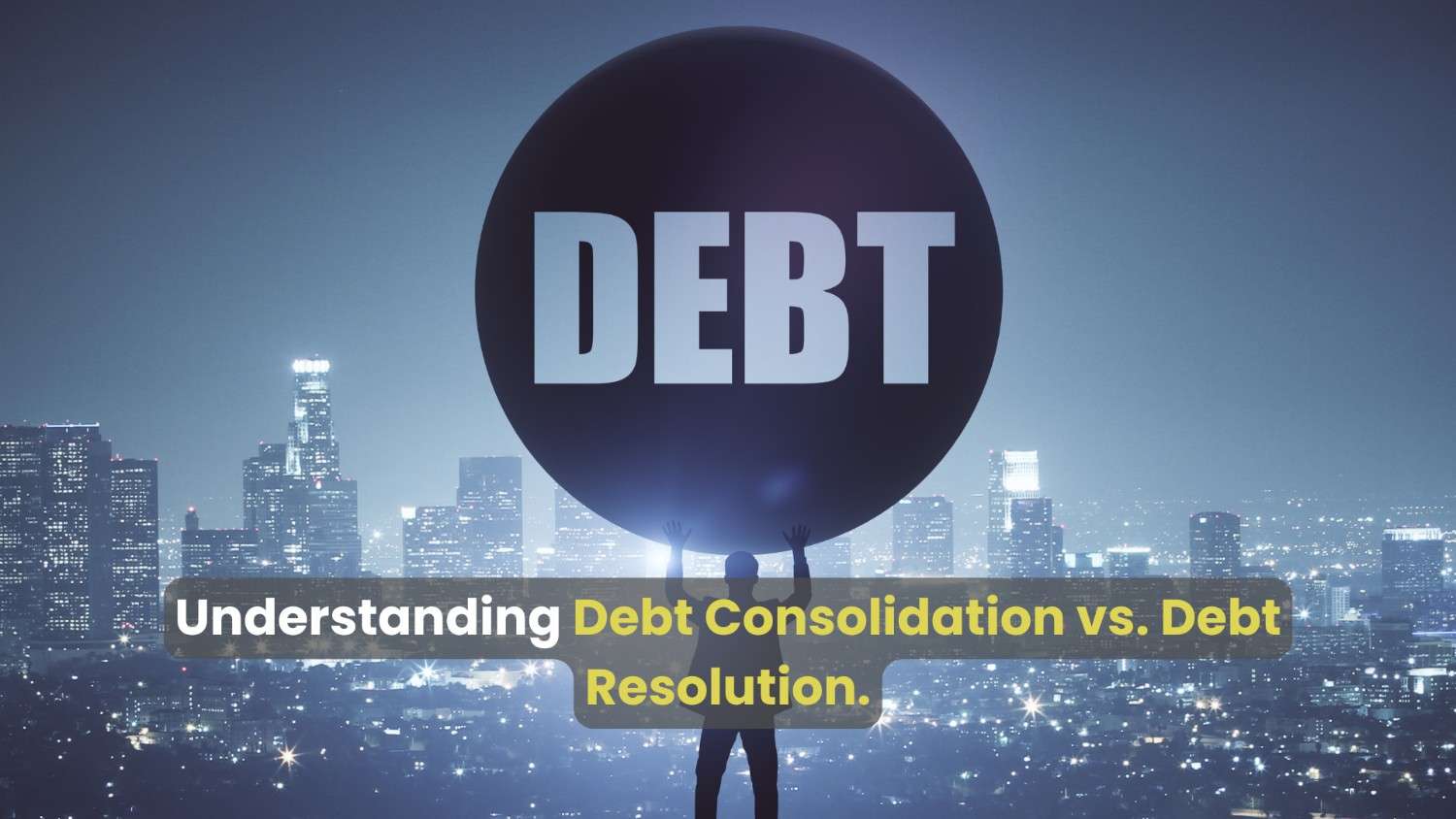· Debt Resolution · 4 min read
The Importance of Mediation in Resolving Debt Disputes
Mediation offers a collaborative and cost-effective alternative to litigation for resolving debt disputes. It fosters trust, preserves relationships, and provides a quicker resolution, making it an essential tool in today’s financial landscape.

Debt disputes can be incredibly stressful and challenging, affecting not only finances but also personal relationships and mental well-being. As more people and businesses seek ways to resolve their financial conflicts, mediation is emerging as an effective and preferred solution. Let’s dive into why mediation is essential in debt resolution and how it can be a practical choice for both individuals and businesses.
What is Mediation?
Mediation is a conflict resolution process where an impartial third party, known as the mediator, helps disputing parties find a mutually agreeable solution. Unlike traditional litigation, mediation focuses on collaboration rather than confrontation, aiming for an outcome that satisfies both sides. It differs from other methods like arbitration or court proceedings because it doesn’t involve a judge or arbitrator making binding decisions.
Types of Debt Disputes Suitable for Mediation
Debt disputes come in various forms, and not all require a courtroom battle. Here are some debt-related issues particularly well-suited to mediation:
Business Debt Disputes: Situations where businesses owe money to suppliers, clients, or other businesses can be resolved amicably through mediation.
Personal Debt Disputes: Disagreements over personal loans, credit cards, and other debts can often be worked out through mediation.
Loan Repayment and Credit Card Debt Issues: With high-interest rates, mediation can help both creditors and debtors agree on manageable repayment plans.
The Mediation Process for Debt Disputes
Mediation generally follows a structured process, which includes:
Initial Consultation: A preliminary discussion between the mediator and the involved parties to understand the dispute.
Mediation Sessions: The mediator facilitates communication, ensuring both sides have the opportunity to express their views and propose solutions.
Reaching an Agreement: The mediator helps document the solution, which can be made legally binding if both parties consent.
Why Choose Mediation Over Litigation?
Mediation stands out for its many benefits over litigation or arbitration:
Cost Savings: Litigation can be expensive, while mediation is typically more affordable.
Confidentiality: Mediation sessions are private, which is ideal for sensitive financial matters.
Time Efficiency: Court cases can drag on, while mediation often reaches a resolution within weeks.
Relationship Preservation: Unlike litigation, mediation is less adversarial, preserving personal or business relationships.
Advantages of Mediation in Debt Disputes
Let’s explore some key benefits of using mediation:
Cost-Effective: Requires fewer legal resources, saving money for both parties.
Confidential: Ensures sensitive financial matters remain private.
Quick Resolutions: Mediation takes less time than litigation, leading to faster resolutions.
Relationship-Focused: Collaborative approach helps preserve relationships in family and business contexts.
Role of the Mediator in Debt Disputes
The mediator plays a critical role in ensuring a fair and balanced process:
Impartiality: A mediator doesn’t take sides but keeps the focus on resolution.
Communication Facilitator: Ensures both sides communicate effectively, clearing misunderstandings.
Guide Toward Resolution: Helps parties find common ground and work towards an agreement.
When to Use Mediation for Debt Disputes
Mediation is most effective when:
Both parties are open to compromise.
Litigation would be overly time-consuming or expensive.
A continued relationship, such as a business partnership, is desired.
How Mediation Helps Build Trust Between Parties
Mediation fosters trust by encouraging collaboration in a non-adversarial setting, resulting in resolutions that feel fair and balanced for both parties.
The Impact of Mediation on Financial and Emotional Stress
Debt-related stress can be overwhelming. Mediation reduces this stress by focusing on collaboration and problem-solving, leading to positive outcomes for all involved.
Real-Life Case Studies of Debt Mediation Success
Case Study 1: Business Debt Resolution: A small business in debt to a supplier avoided litigation by working out a payment plan through mediation.
Case Study 2: Personal Loan Dispute: A family facing a loan dispute restructured payments through mediation, avoiding the strain of court.
Challenges in Debt Dispute Mediation
Potential challenges include:
Stubbornness or unwillingness to compromise.
Unrealistic expectations from either party.
A lack of preparation.
Experienced mediators help overcome these hurdles by steering conversations effectively.
Preparing for a Debt Mediation Session
Preparation is key to successful mediation:
Gather Documents: Collect relevant financial documents.
Be Open-Minded: Consider solutions beyond initial preferences.
Set Clear Goals: Know what you want to achieve but be ready to find middle ground.
How to Find a Qualified Debt Mediator
Look for mediators with:
A proven track record in debt mediation.
Relevant certifications.
A reputation for fairness and professionalism.
Conclusion
Mediation is an invaluable tool for resolving debt disputes in today’s financial landscape. It offers a structured, supportive process that fosters cooperation and mutual satisfaction, making it an effective alternative to litigation. Whether dealing with business debt or personal loans, mediation provides a quicker, less stressful path to resolution.
FAQs
How does mediation differ from negotiation?
Mediation involves a neutral third party, while negotiation is usually direct between disputing parties.Can mediation resolve all types of debt disputes?
While effective for many disputes, some cases may require litigation if mediation fails.What happens if mediation fails?
Parties can explore arbitration or litigation as next steps.Is mediation legally binding?
Mediation agreements can be made legally binding if both parties agree.How long does a typical debt mediation take?
Most mediations conclude within weeks to a few months, depending on the case’s complexity.



.Dceoa-1b.jpeg)